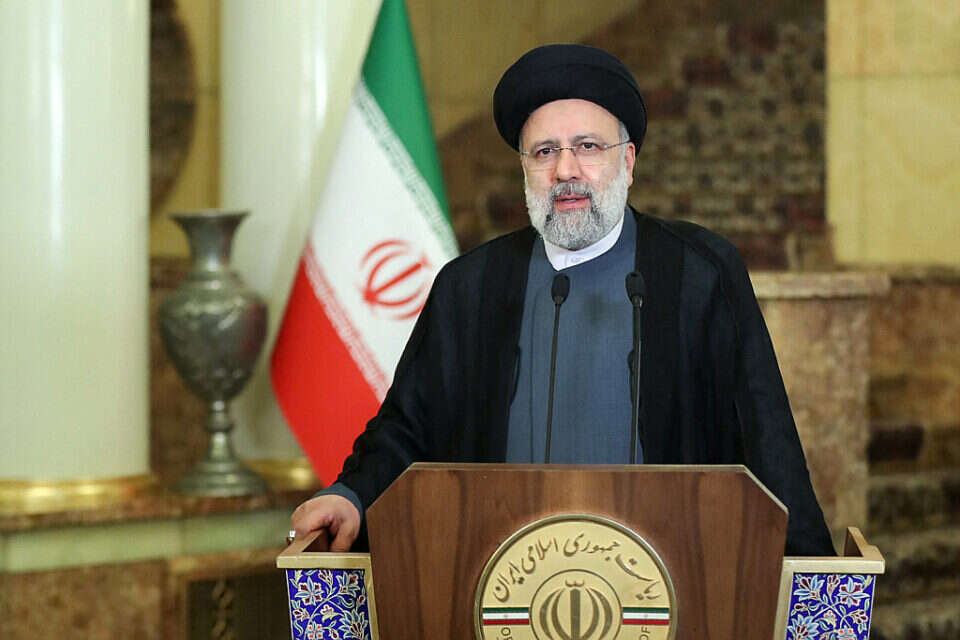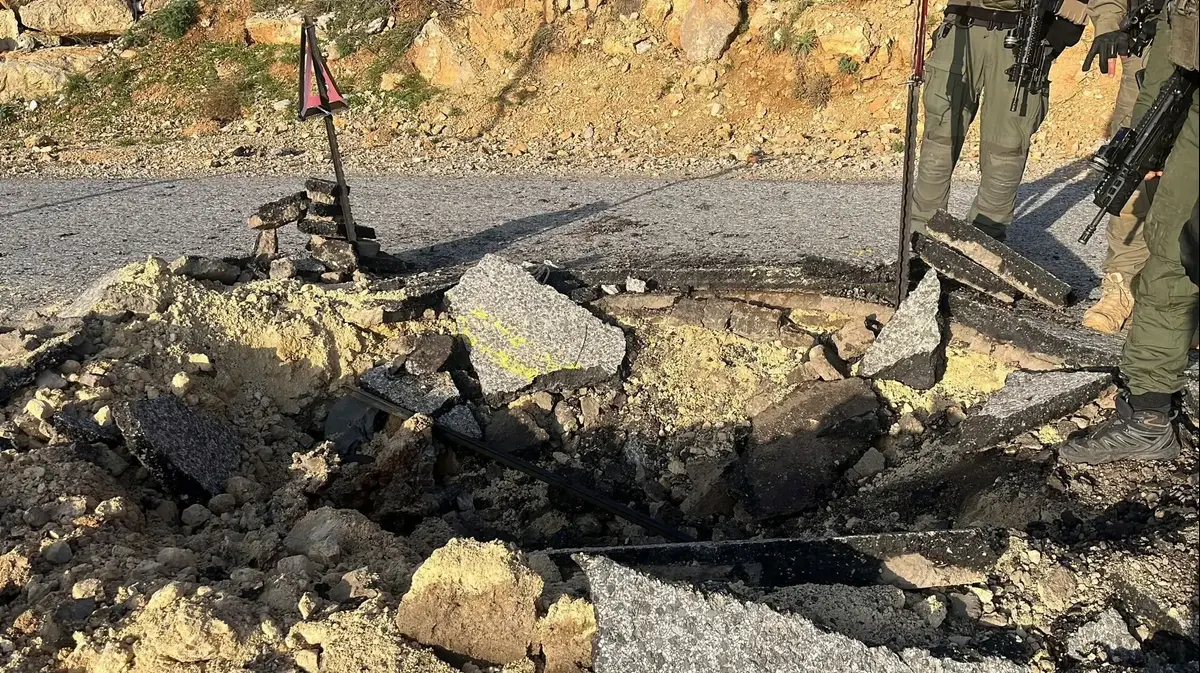Amid growing tensions between Israel and Iran and ahead of the opening of another round of nuclear talks between the United States and Iran, Israeli National Security Council chief Eyal Hulta and his American counterpart, US National Security Adviser Jake Sullivan, met in Washington this week.
The meeting took place as part of the strategic talks between Israeli and American teams.
At the end of the meeting, White House National Security Council spokeswoman Emily Horn said Sullivan "emphasized the clear commitment to Israel's security and that Iran will never acquire nuclear weapons."
He further clarified that "if diplomacy fails, the United States is ready to turn to other options."
The Iranian conduct that is creating difficulties in returning to the original nuclear deal from 2015 irritates the Americans and for the first time seems to even push them to a certain retreat from their compromising position towards Tehran.
It is no secret that the declared policy of the new US administration was in the first place a return to the original nuclear agreement with Iran as soon as possible, to the displeasure of Israel, which claims the agreement is full of guys and limited in time and about a decade.
To reassure Israel, the Americans promised after the signing of the original agreement that they would work with the Iranians to reach a complementary agreement, which they claimed would limit the Iranian nuclear program in the longer term.
Israel was skeptical and informed the Americans that they did not understand what the Iranian interest would be in signing such an enhanced agreement if there was no threat to Iran of very heavy economic sanctions or a credible military option that would spur them to do so.
In practice, the Americans fail to implement the first step in their plan, which is to get the Iranians to sign the problematic original agreement, as Iran piles up difficulties and draws time with various excuses.
Nearly ten months have passed since Biden entered the White House, and the agreement has not been signed.
In talks between the Americans and Israel this week, the Israelis noticed the buds of change in the American administration.
American patience is beginning to run out, Israeli officials said, estimating with half satisfaction that the Biden government is also beginning to understand that it will have no choice but to put some pressure on Iran to get it back to the original agreement.
No one is fooling themselves that the Biden administration will adopt a policy close to Donald Trump's "maximum fresher" policy, which included very harsh sanctions on Tehran.
Israel has, of course, been interested in heavier sanctions or some formidable military destroyer that will patrol off the coast of Iran, but the imposition of more subtle sanctions is also the beginning of a change in US conciliatory policy toward Iran and Israel hopes the trend will intensify.
One way or another, the current shuffle situation, in which Iran is not bound by any agreement and the US does not threaten it with harsh sanctions due to the background negotiations, is very bad for Israel. Although it seems that she is trying to economize her steps carefully and not break into the nucleus at once so as not to upset the world too much.
In any case, even when Iran has enough high-enriched material for one bomb, the nuclear threat will not be immediate, as Tehran will still have to assemble the bomb, conduct nuclear tests and complete the development of missiles that can carry the nuclear warhead.
But that would already make it a nuclear threshold state, for all that that implies.
New Commander of the Armed Forces
The Iranian nuclear threat, as well as Iranian activity throughout the Middle East, are the top priority issue that concerns Israeli intelligence agencies.
On Tuesday this week, at a ceremony to replace the head of the Armed Forces, Chief of Staff Lt. Gen. Aviv Kochavi referred to this, saying that "Operations to destroy Iranian capabilities will continue, in any arena and at any time, and the operational plans against Iran's nuclear program will continue to evolve. Which will be.
It is our duty to provide a military, effective and timely response. "
The heavy burden of bringing accurate, reliable and available intelligence to what is happening in Iran was placed this week on the shoulders of Major General Aharon Haliva, who replaced Major General Tamir Heiman as head of the IDF's Intelligence Division. , Commander of the 98th Division and more, is considered an officer and a razor-sharp man, very shrewd and no less important, close to the chief of staff, Aviv Kochavi.
The organization that Haliva receives is a very strong organization, which has led to very large revolutions in recent years, at least one of which, artificial intelligence, has served the IDF well during Operation Wall Guard.
But the technological and intelligence challenges are not the only challenge facing the incoming head of the Armed Forces.
Especially the brilliant and talented technologists.
A young officer in the Armed Forces simply has to cross the road to receive a double salary multiplied by that offered by the IDF, in fewer working hours and with much more favorable conditions.
The IDF is trying to sell these brilliant soldiers and permanent personnel a challenge and interest and maybe even some Zionism, but in the end, with a challenge they are not going to buy in a grocery store, especially in the reality of a hedonistic culture that almost sanctifies the well-being of the individual.
If that is not enough, the defense establishment intends to move the IDF servicemen to the south of the country in a few years (the date has been repeatedly postponed, and now the updated date is 2027).
The IDF is also very concerned about the fact that transportation and other solutions have not yet been found that will support the move south. .
Ron Arad
Next Saturday, October 16, will mark the 35th anniversary of Ron Arad's captivity.
This week, the issue made headlines after Prime Minister Naftali Bennett revealed on the Knesset podium that women and Mossad personnel went on an operation last month in order to find out information about the fate and whereabouts of Ron Arad.
"It was a complex, large-scale and daring operation," Bennett said, adding that he thanked the IDF and the GSS for cooperating in this operation.
"We will continue to work to bring our sons home," he concluded.
Bennett's update has opened a Pandora's box. Up to this very moment it is not clear what was so urgent for the Prime Minister to update the public and the whole world, in fact the existence of the operation. Operations in an attempt to solve Ron Arad's mystery have been made repeatedly over the past 35 years and no one has felt a strong need to update the public on this. The dance of the demons that created Bennett's words drew a host of foreign and local publications and a surplus of speculation, some of which were true and some of which were probably imaginary. But a column in the Haaretz newspaper detailed the most sensitive strings of Tami and Yuval Arad, the captive navigator's wife and daughter. Tami Arad, who has known hopes, disappointments and quite a few emotional upheavals over the years, responded to this on her Facebook page: "Despite the many posts, we did not endanger the lives of fighters in the last operation of the section. I stand behind every word I write. The operation and after it, and I was convinced that they were telling the truth. "
She added: "This is an opportunity to point out that during the years they searched for Ron, in the various operations that were carried out, no soldiers or Mossad personnel were killed."
Tami Arad wrote that she and her family had asked for years not to endanger the lives of fighters in the actions that would be taken in Arad's case.
It is not clear what Bennett was trying to achieve in his remarks.
Maybe divert public attention from corona failures?
Or try to equate himself with the image of a leader capable of making difficult decisions in the security field?
In practice, Bennett has made quite a few mistakes in recent weeks in trying to position himself as a leader, leading to a clash with the Ministry of Health after a speech at the UN and an unnecessary dispute with the defense minister.
One thing is clear, beyond a lively public debate and additional pain for Arad's family, nothing came out of the prime minister's extensive speech on the Knesset podium regarding the "daring operation."
On the contrary, the squeaky relationship between Bennett and Defense Minister Benny Gantz was further undermined following this affair, after Bennett bothered to inform Gantz that he intended to publish the operation just minutes before he took the Knesset podium.
In response, unknown security sources updated that the operation did not achieve its goals and did not advance Israel by one millimeter towards resolving the Ron Arad affair.
If the two do not recover and make clarification calls to their bureaus as well, the complex relationship between them will only get worse and it is not at all certain that in such a faltering government, which depends on all its members, Bennett can afford it.






/cloudfront-eu-central-1.images.arcpublishing.com/prisa/23MZ42WUHLFBA5Q4J7HEZJ2AOQ.jpg)








